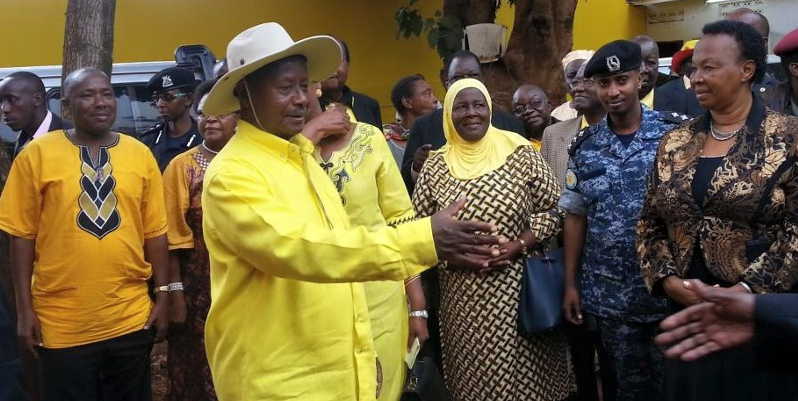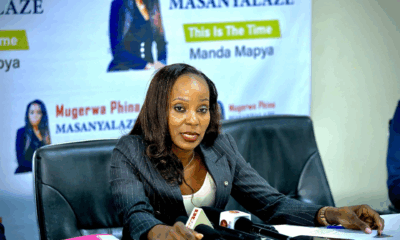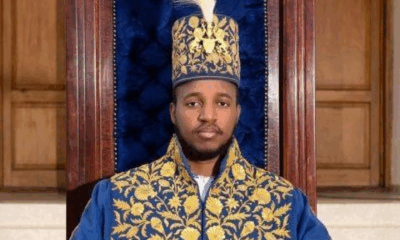Analysis
Why incumbents are not likely to lose elections
Colonel Dr. Kizza Besigye recently apologized to the people of Masaka over his failure to oust President Museveni in the last three presidential elections. The retired Colonel must have underestimated the strength of his arch rival. This is what happens when you touch the tail of the elephant in the dark; you are likely to think that you are holding a simple snake. History has taught us never to underestimate the strength of an incumbent.
The fact that one is an incumbent means that he has already run at least one successful campaign. That means that he has valuable experience in creating an efficient campaign organization. This person has gone through it before and is more prepared than the opponent. Incumbents can use state agencies including the electoral commission to win elections. They also have access to state wealth which can be used to influence people’s voting pattern.
In addition to money, an incumbent spends his time in office connecting with constituents attending special events, and appearing on television or radio talk shows, essentially the same activities a candidate does during campaign. The incumbent receives a full time wage while doing so unlike the challenger who has to find alternative ways to pay his bills while campaigning.
But every election tends to be a unique event because electoral conditions vary a lot from time to time. It must be known that the final outcome of an election depends on several factors including the economic performance of the incumbent, the provision of public goods, institutional factors, social factors, the incumbent’s characteristics, the challenger’s characteristics, the electoral systems, historical and geographical factors and initial conditions.
The social factors seem to have strong effect on electoral outcomes. Observing that the most frequent electoral outcome in Africa is the incumbent wins with no contestant of results and stays in power, this suggests that when voters get access to higher education, and obtain better understanding of the political, social and economic situation of their country, they are more likely to contest the re-election of the incumbent if they deem it fraudulent.
Ethnic fractionalization also significantly affects the electoral outcomes. This seems expected as conflicting ethnic interest is a strong additional motivation for the incumbent to fight for re-election. The 2008 post election violence in Kenya after re-election of Mwai Kibaki was partly springing from ethnic fractionalization.
In terms of political factors, an additional five year mandate in power significantly decreases the probability of an incumbent losing and therefore relinquishing power; in fact it only increases the probability of an incumbent winning. This is in line with the fact that the appetite for power increases with time spent in power, and this generally reflects the advantage of incumbency.
If the opposition is strong, the incumbent is less likely to cling on power or win without contestation as expected since the cost of electoral fraud and result rejection are high. Also changing the political system from multiparty to single party decreases the probability of an incumbent losing and the result is contested. Accepting defeat is not a big deal in a single party election since power remains under the party’s control no matter the election outcome. For the same reason there is no need to cling on power when losing.
In cases where the incumbent is from the military, the probability of such an incumbent losing and contestation increases by 0.12. Military incumbents are more likely to come to power through political coup and govern by force causing voter discontent in the long run. To legitimize their power and demonstrate their popularity to the international community, military incumbents organize ‘democratic elections’.
It should be noted that it is not the voting that communicates the existence of democracy in any country, it is rather the counting that matters here. As long as elections are not free and fair there is no democracy. Voters are likely to express their discontent through the ballot and the military incumbent is likely to lose. But because the incumbent did not expect to lose and want to hold power, he will not concede defeat.
It has not been a relic for incumbent African Presidents to lose elections. They have always searched heaven and earth for a win at all costs. The very few who conceded defeat are indeed the heroes of democracy. The five outstanding incumbents who lost elections include Aden Abdullah Osman Daar of Somalia , Abdoulaye Wade of Senegal, Rupiah Bwezani Banda and Kenneth David Kaunda of Zambia, and recently Jonathan Good Luck of Nigeria. The future of democracy in African lies in free and fair electoral process as well as the readiness of candidates to concede defeat.
Comments



























